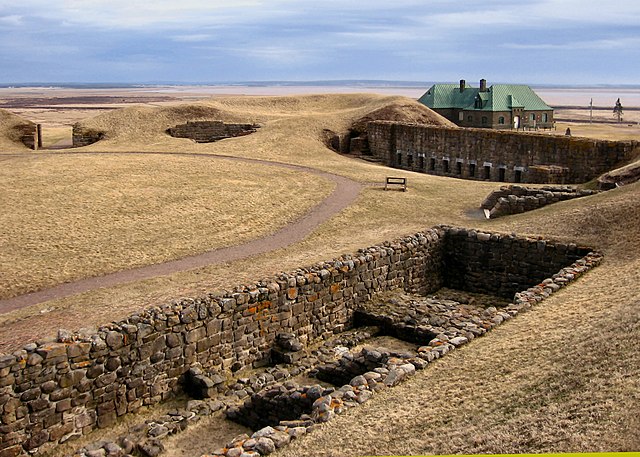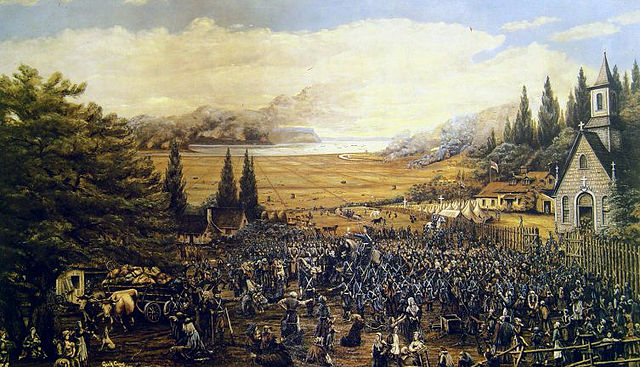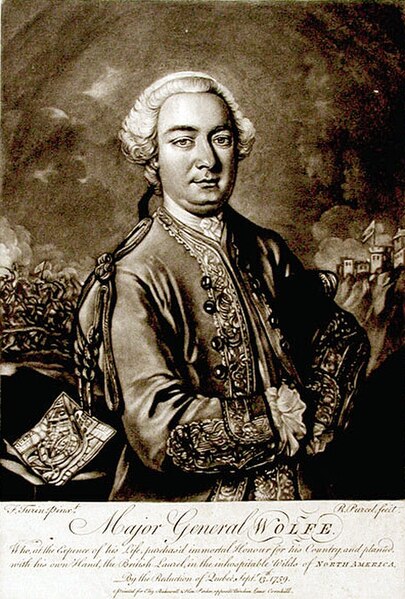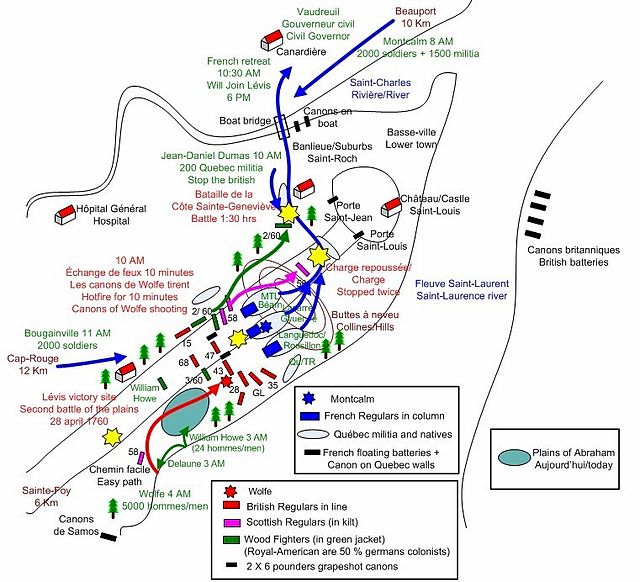Lieutenant-General Robert Monckton was an officer of the British Army and colonial administrator in British North America. He had a distinguished military and political career, being second in command to General James Wolfe at the battle of Quebec and later being named the Governor of the Province of New York. Monckton is also remembered for his role in a number of other important events in the French and Indian War, most notably the capture of Fort Beauséjour in Acadia, and the island of Martinique in the West Indies, as well as for his role in the deportation of the Acadians from British controlled Nova Scotia and also from French-controlled Acadia. The city of Moncton, New Brunswick, and Fort Monckton in Port Elgin, New Brunswick, are named for him. A second more important Fort Monckton in Gosport, England, is also named for him. It remains an active military establishment, and currently houses the British Secret Intelligence Service (MI6) training section. Monckton sat in the British House of Commons between 1774 and 1782. Although never legally married, he raised and was survived by three sons and a daughter.

Robert Monckton by Thomas Hudson
View of Fort Beauséjour showing the foundation of the Officers Quarters in the foreground, the modern (1930s)museum in the middle ground, and Cumberland Basin in the background. Monckton approached the fort from Aulac Ridge, which would be behind the observer.
Grand Pré: Deportation of the Acadians during the Bay of Fundy Campaign (1755)
St. John River Campaign: A View of the Plundering and Burning of the City of Grimross (present day Arcadia, New Brunswick) by Thomas Davies in 1758. This is the only contemporaneous image of the Expulsion of the Acadians.
Battle of the Plains of Abraham
The Battle of the Plains of Abraham, also known as the Battle of Quebec, was a pivotal battle in the Seven Years' War. The battle, which began on 13 September 1759, was fought on a plateau by the British Army and Royal Navy against the French Army, just outside the walls of Quebec City on land that was originally owned by a farmer named Abraham Martin, hence the name of the battle. The battle involved fewer than 10,000 troops in total, but proved to be a deciding moment in the conflict between France and Britain over the fate of New France, influencing the later creation of Canada.
The Death of General Wolfe, Benjamin West
A portrait of Wolfe printed circa 1776
French fire ships sent downriver to block the British advance, as shown in a copy of a painting by Dominic Serres
The Battle of the Plains of Abraham








